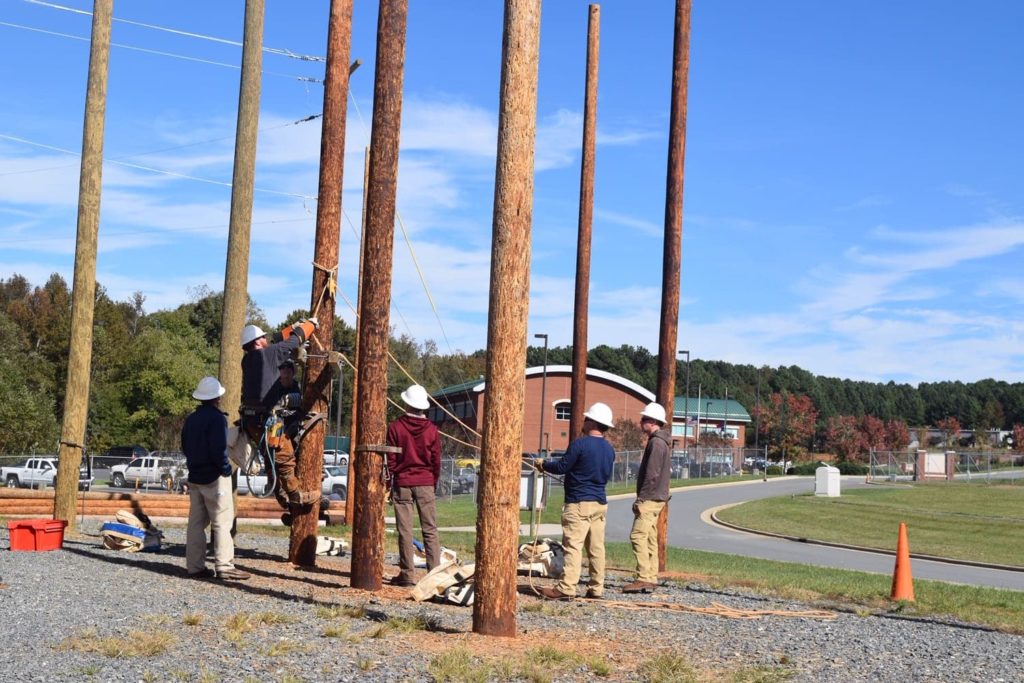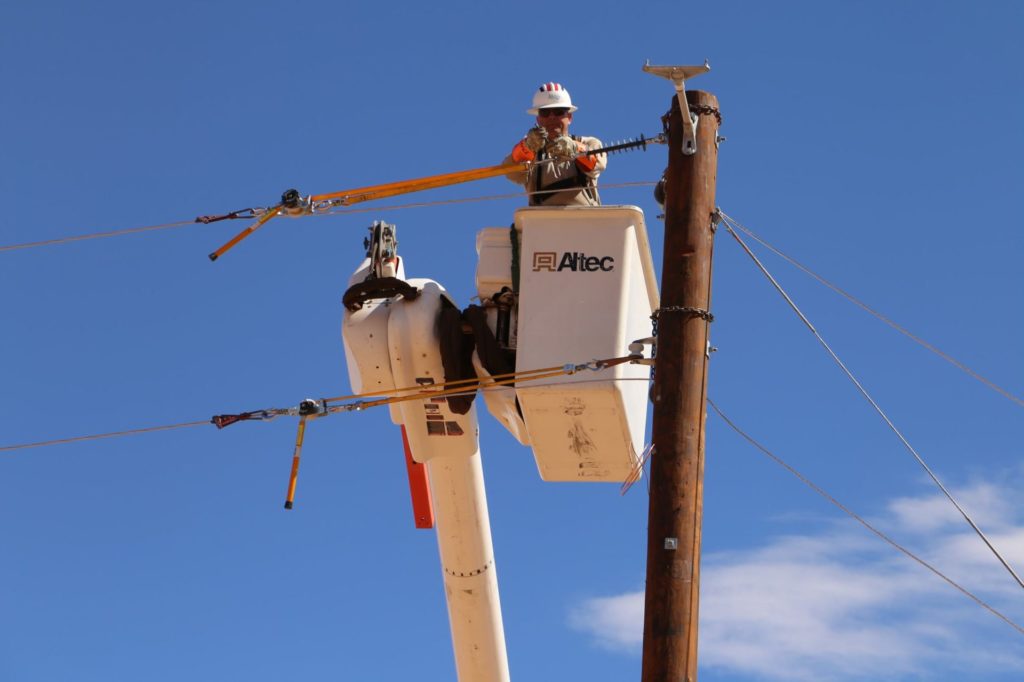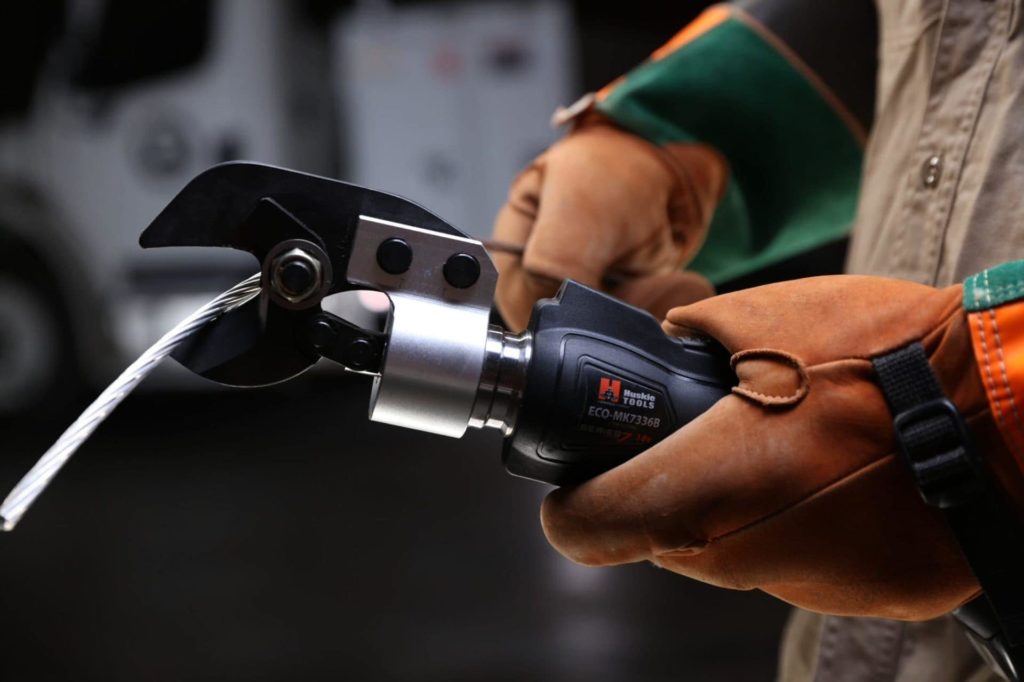What’s the difference?
By Kevin Juhasz
For Huskie Tools
Lineworkers and electricians are two professions that are a major part of our society. The number of conveniences these men and women provide to us seems almost endless. Both are similar in some ways and very different in others.
Both jobs are not the type you can just jump into. In addition to any education they get, linemen and electricians must follow the path from apprentice to journeyman to master. Both also are part of the International Brotherhood of Electrical Workers (IBEW). As lineworkers and electricians advance in their career they both can be expected to be paid well.
Lineman and electricians both have dangerous jobs, which requires a heavy focus on safety. Working with electricity can cause serious injury or death regardless of which area you’re working in. There are also telecommunications, cable, and fiber-optic lines that need to be handled.
Both professions are also vital to the world. Any disruption to electricity can be more than an annoyance, it can also be deadly. It’s critical to survival for many people and necessary in almost every business.
The other similarity they share is a rosy outlook for the future. Jobs for linemen are expected to grow 8 percent over the next decade, which is twice the national average. Electricians are expected to receive a 10 percent growth over the same time period.
Differences in Education

Although it’s not always required, an education in linework or for electricians can be a boost in getting an apprenticeship. Electricians can find education at a technical school or community college, as well as traditional schools. Lineworkers can also find a start to their career at a traditional school. However, there are more schools now that focus on the specialized training that linemen need, such as pole climbing, OSHA standards, and commercial licenses needed to operate trucks. Any licensing required can vary from state-to-state.
Electricians are not limited to working on buildings. There are other areas they can venture into which requires further education such as aircraft and marine electrical work.
Both professions use different types of tools and safety equipment, which we’ll cover in a moment, and these schools offer them a chance to become familiar with those.
Differences in Work Areas

Linemen spend most of their time dealing with the transmission side of electricity. They work in buckets and climb poles. They are responsible for installing and maintaining the system that gets electricity to the structures that require it.
A lot of the work by lineworkers is performed outside, but not all of it. There may be some underground transmission vaults, since there are electrical lines laid underground that also need attention. Lineworkers usually have to face harsh weather conditions, such as cold and snow. They’re also the ones needed first to restore power after severe weather strikes a region. Because of this, linemen have jobs that sometimes require them to be available whenever needed.
Electricians build and maintain the systems that get the power to various places in houses and businesses. The plugs, lights, smoke and carbon monoxide detectors, and appliances in your home or business - you’re able to get all of that thanks to an electrician. Electrician’s work is typically done indoors, but not always. There are going to be parts of the system that require outdoor work, such as wiring a solar system on your roof. There are also instances where electricians have to work in very confined spaces. They may also be needed after severe weather, but the hours tend to be more reliable.
Differences in Equipment

Both careers have specialized equipment, which is designed to handle the type of work they’re doing. Linemen usually work with larger high-voltage lines. They need to have powerful equipment that can handle cutting and crimping, quickly and safely. Lineworkers also need items to help them climb poles and safely stay on them while working on lines.
Electricians handle lower levels of electricity, although they may work with higher levels in commercial buildings. They also commonly work with the power switched off. But this doesn’t mean that they don’t need to be careful. You never know what could be going on with an electrical line.
Differences in Safety Equipment
Personal protective equipment is critical for both positions. Lineworkers and electricians need to have clothing that is best for the environment and is fire-retardant with rubber sleeves. Insulated gloves, eye protection, hardhats, and a good pair of insulated boots are also common PPE items. Depending on the environment, a good headlamp is very helpful.
Electricians will usually use smaller tools, which should also be designed to protect you against any hazards.
Since linemen are working on high-voltage lines and may be climbing, there is additional items they need. A hotstick is one crucial item as is a safety harness with a lanyard when working at heights upwards of 500 feet.
